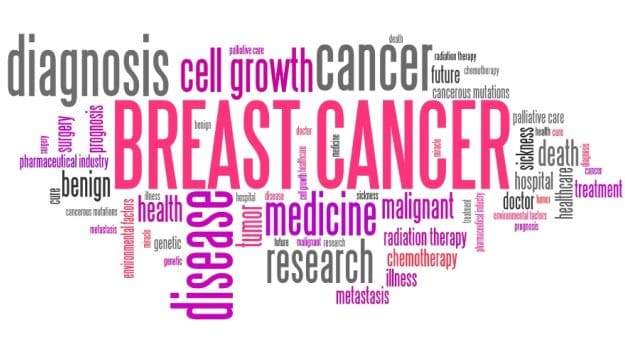According to World Health Organisation (WHO), breast cancer is the one of the most common cancers affecting women across the globe today. The rate of breast cancer is expanding, particularly in the developing countries, and this has much to do with unhealthy lifestyle habits. Although there are a few measures one can take to prevent the risk of breast cancer, but in most cases it is diagnosed in the later stages, when there’s very less one can do to treat it. Therefore, early diagnosis still remains the foundation of breast cancer control.Breast cancer is a form of cancer that develops from the breast tissues. Usually, it either begins in the cells of the lobules, which are the milk-producing glands, or the ducts, the passages that drain milk from the lobules to the areola. Over time, cancer cells can invade nearby healthy breast tissue and make their way into the underarm lymph nodes, which play a vital role in filtering out foreign substances in the body. If cancer cells get into the lymph nodes, they then have a pathway into other parts of the body. The different breast cancer stages refer to how far the cancer cells have spread from the original tumor.Signs of breast cancer may include a lump in the breast, a change in breast size, dimpling of the skin, liquid secreting from the areola (the pigmented area surrounding the nipples), or a red scaly patch of skin. In those with a distant spread of the illness, there might be bone torment, swollen lymph hubs, shortness of breath, or yellow skin.
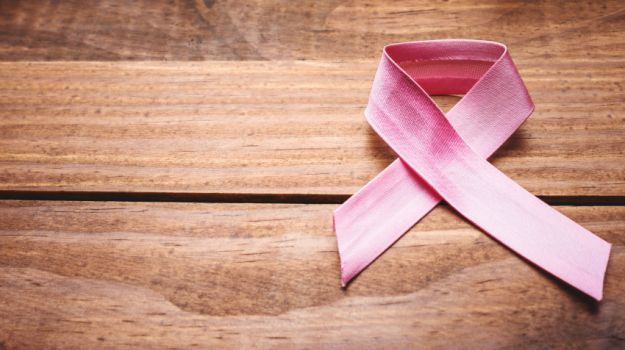 According to International Agency for Research on Cancer, in the year 2015, there was an estimated 1,55,000 new cases of breast cancer in India and about 76000 women died due to this disease. Another truth that most of us are not aware of is that men too can be diagnosed with breast cancer. According to a research study by National Breast Cancer Foundation an estimated 2,350 men are diagnosed with breast cancer and approximately 440 die each year.Prevention is always better than cure. Here are some preventive measures that one could take to avoid the risk of breast cancer:1. ScreeningAs per Dr. Harsh Dua, Senior Oncologist, Indraprastha Apollo, New Delhi, women who have a family history of breast cancer must get a regular check-up done, particularly after the age of 35 years. There are two methods for doing it, one is a mammography and the other ultra-sound. Most specialists lean toward ultra-sound over mammography as radiation is included in the latter.
According to International Agency for Research on Cancer, in the year 2015, there was an estimated 1,55,000 new cases of breast cancer in India and about 76000 women died due to this disease. Another truth that most of us are not aware of is that men too can be diagnosed with breast cancer. According to a research study by National Breast Cancer Foundation an estimated 2,350 men are diagnosed with breast cancer and approximately 440 die each year.Prevention is always better than cure. Here are some preventive measures that one could take to avoid the risk of breast cancer:1. ScreeningAs per Dr. Harsh Dua, Senior Oncologist, Indraprastha Apollo, New Delhi, women who have a family history of breast cancer must get a regular check-up done, particularly after the age of 35 years. There are two methods for doing it, one is a mammography and the other ultra-sound. Most specialists lean toward ultra-sound over mammography as radiation is included in the latter.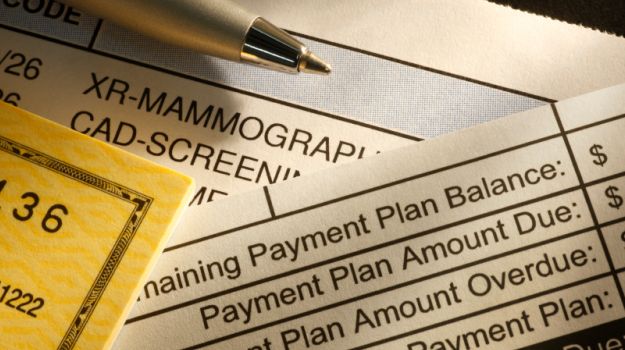 2. Physical ActivityPhysical activity is important not just to maintain your weight but also to stay fit, which can shield you from various diseases. For adults, the Department of Health and Human Services recommends no less than 150 minutes a week of moderate aerobic activity or 75 minutes of vigorous aerobic activity weekly, in addition to strength training at least twice every week. Regular physical activity and the maintenance of a healthy body weight, along with a healthy diet, could considerably reduce breast cancer risk.
2. Physical ActivityPhysical activity is important not just to maintain your weight but also to stay fit, which can shield you from various diseases. For adults, the Department of Health and Human Services recommends no less than 150 minutes a week of moderate aerobic activity or 75 minutes of vigorous aerobic activity weekly, in addition to strength training at least twice every week. Regular physical activity and the maintenance of a healthy body weight, along with a healthy diet, could considerably reduce breast cancer risk.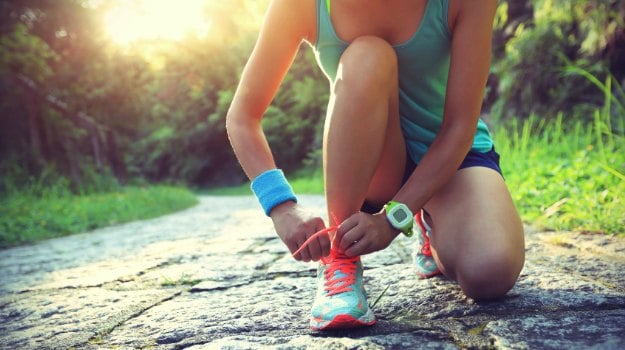 3. Check Your DietWhat you eat today has repercussions on your health in the years to come. Following a healthy diet can benefit you in various ways, keeping a check on numerous illnesses. With constant reports of carcinogens (cancer causing substances) found in commercially processed bread, meat, aerated beverages, etc, it only becomes more important now to watch what we eat. No wonder the current trend is to get back to good old home cooked meals and saying no to processed food. According to a study done by the University of Texas, the high amount of dietary sugar in a typical Western diet may increase the risk of breast cancer and its spread to the lungs. "We determined that it was specifically fructose, in table sugar and high-fructose corn syrup, ubiquitous within our food system, which was responsible for facilitating lung metastasis and 12-HETE (a fatty acid) production in breast tumours,” said Professor Lorenzo Cohen, co-author of the study.What foods can help? According to a study done by Harvard T.H. Chan School of Public Health, eating high fiber foods during adolescence - especially lots of fruits and vegetables - may significantly help against breast cancer risk by reducing high estrogen levels in the blood, which are strongly linked with breast cancer development.Another study done by the Pennsylvania State University in US reveals that foods rich in Omega-3 fatty acids are likely to reduce the risk of breast cancer in women who are obese and in post-menopausal phase.
3. Check Your DietWhat you eat today has repercussions on your health in the years to come. Following a healthy diet can benefit you in various ways, keeping a check on numerous illnesses. With constant reports of carcinogens (cancer causing substances) found in commercially processed bread, meat, aerated beverages, etc, it only becomes more important now to watch what we eat. No wonder the current trend is to get back to good old home cooked meals and saying no to processed food. According to a study done by the University of Texas, the high amount of dietary sugar in a typical Western diet may increase the risk of breast cancer and its spread to the lungs. "We determined that it was specifically fructose, in table sugar and high-fructose corn syrup, ubiquitous within our food system, which was responsible for facilitating lung metastasis and 12-HETE (a fatty acid) production in breast tumours,” said Professor Lorenzo Cohen, co-author of the study.What foods can help? According to a study done by Harvard T.H. Chan School of Public Health, eating high fiber foods during adolescence - especially lots of fruits and vegetables - may significantly help against breast cancer risk by reducing high estrogen levels in the blood, which are strongly linked with breast cancer development.Another study done by the Pennsylvania State University in US reveals that foods rich in Omega-3 fatty acids are likely to reduce the risk of breast cancer in women who are obese and in post-menopausal phase.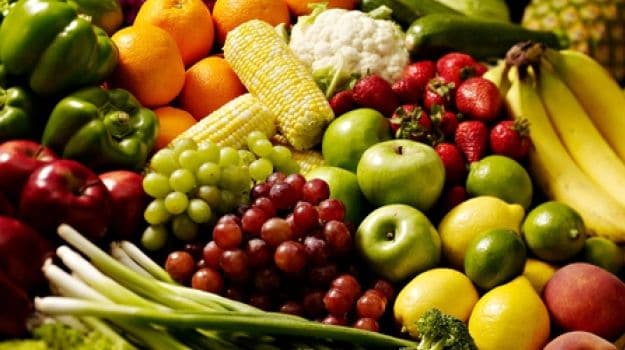 4. Breast FeedingBreastfeeding can lower breast cancer risk, especially if a woman breastfeeds for a longer period of time, preferably till the new born is at least two-years old. According to Dr. Deepanjan Panda, Senior Consultant, Medical Oncologist, Indraprastha Apollo, New Delhi, the reason why breast feeding protects women from breast cancer is because most women have fewer menstrual cycles when they’re breast feeding (added to the nine missed periods during pregnancy) resulting in higher estrogen levels. Breastfeeding helps by lowering the estrogen levels, thus preventing the risk of cancer.According to a large international study published in Annals of Oncology, women who breastfeed may have up to 20 per cent reduced risk of developing an aggressive form of breast cancer called Hormone-receptor-negative (HRN) breast cancers, which is often diagnosed at the later stages. Gene mutation, obesity and multiple early pregnancies are some factors. In the absence of the receptors for estrogen, progesterone, and HER2, medicines are ineffective and thus have no role in treating these patients. “Breastfeeding is a relatively accessible, low-cost, short-term strategy that yields long-lasting natural protection,” said Marisa Weiss, president and founder of Breastcancer.org, and director of breast health outreach at Lankenau Medical Centre in US.
4. Breast FeedingBreastfeeding can lower breast cancer risk, especially if a woman breastfeeds for a longer period of time, preferably till the new born is at least two-years old. According to Dr. Deepanjan Panda, Senior Consultant, Medical Oncologist, Indraprastha Apollo, New Delhi, the reason why breast feeding protects women from breast cancer is because most women have fewer menstrual cycles when they’re breast feeding (added to the nine missed periods during pregnancy) resulting in higher estrogen levels. Breastfeeding helps by lowering the estrogen levels, thus preventing the risk of cancer.According to a large international study published in Annals of Oncology, women who breastfeed may have up to 20 per cent reduced risk of developing an aggressive form of breast cancer called Hormone-receptor-negative (HRN) breast cancers, which is often diagnosed at the later stages. Gene mutation, obesity and multiple early pregnancies are some factors. In the absence of the receptors for estrogen, progesterone, and HER2, medicines are ineffective and thus have no role in treating these patients. “Breastfeeding is a relatively accessible, low-cost, short-term strategy that yields long-lasting natural protection,” said Marisa Weiss, president and founder of Breastcancer.org, and director of breast health outreach at Lankenau Medical Centre in US. 5. Quit Smoking and Watch that LiquorDr. Shakun Munshi Malik, Senior Oncologist, National Institute of Cancer, Maryland, USA, says, “Although results have not been uniform, various studies propose there is a modestly expanded danger of breast cancer in smokers. The relationship between cigarette smoking and breast cancer is complicated by the fact that up to 50 percent of women who smoke or devour liquor, tend to be prone to a dangerous element proven to be a risk factor for breast cancer”.A study conducted by five Spanish universities (Asturias, Granada, Murcia, Navarra and San Sebastian) confirmed previous evidence concerning the relationship between alcohol intake and breast cancer stating “alcohol intake increases the chances of developing breast cancer by four times with the intake of each daily glass of wine or beer.” One of the studies published in Alcoholism: Clinical & Experimental Research suggests that a byproduct of alcohol called acetaldehyde, damages DNA, which may lead to the growth of breast cancer. It has also been seen that alcohol depletes levels of folate, which is required to repair damaged DNA in the body.
5. Quit Smoking and Watch that LiquorDr. Shakun Munshi Malik, Senior Oncologist, National Institute of Cancer, Maryland, USA, says, “Although results have not been uniform, various studies propose there is a modestly expanded danger of breast cancer in smokers. The relationship between cigarette smoking and breast cancer is complicated by the fact that up to 50 percent of women who smoke or devour liquor, tend to be prone to a dangerous element proven to be a risk factor for breast cancer”.A study conducted by five Spanish universities (Asturias, Granada, Murcia, Navarra and San Sebastian) confirmed previous evidence concerning the relationship between alcohol intake and breast cancer stating “alcohol intake increases the chances of developing breast cancer by four times with the intake of each daily glass of wine or beer.” One of the studies published in Alcoholism: Clinical & Experimental Research suggests that a byproduct of alcohol called acetaldehyde, damages DNA, which may lead to the growth of breast cancer. It has also been seen that alcohol depletes levels of folate, which is required to repair damaged DNA in the body. 6. Limit Hormone TherapyAccording to Dr. Jeebak Bhattacharya, Radiologist, Apollo Hospitals, Kolkata, combination hormone treatment for more than three to five years increases the danger of breast cancer. In case you're taking hormone treatment for menopausal symptoms, consult your doctor about different options. You might be able to deal with your symptoms with non-hormonal treatments. If undergoing hormone treatment, try to use the least dosage that works for you and keep on having your specialist screen the time span you are taking those hormones.
6. Limit Hormone TherapyAccording to Dr. Jeebak Bhattacharya, Radiologist, Apollo Hospitals, Kolkata, combination hormone treatment for more than three to five years increases the danger of breast cancer. In case you're taking hormone treatment for menopausal symptoms, consult your doctor about different options. You might be able to deal with your symptoms with non-hormonal treatments. If undergoing hormone treatment, try to use the least dosage that works for you and keep on having your specialist screen the time span you are taking those hormones.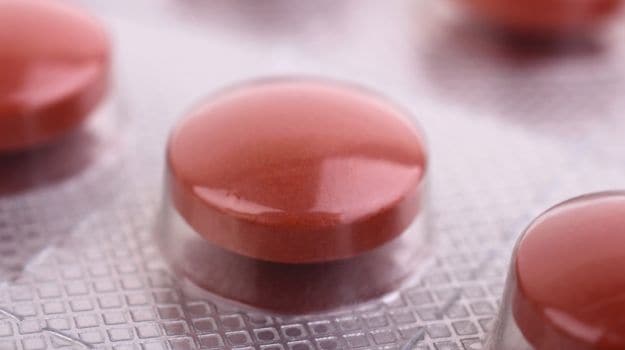 While cancer is a dangerous illness that takes the lives of many across the globe, some of these preventive measures can prove to be useful. Remember, your lifestyle habits can have a correlation with your risk of cancer. A few lifestyle changes now, could help you reap benefits in the long term.Disclaimer: The opinions expressed within this article are the personal opinions of the author. NDTV is not responsible for the accuracy, completeness, suitability, or validity of any information on this article. All information is provided on an as-is basis. The information, facts or opinions appearing in the article do not reflect the views of NDTV and NDTV does not assume any responsibility or liability for the same.
While cancer is a dangerous illness that takes the lives of many across the globe, some of these preventive measures can prove to be useful. Remember, your lifestyle habits can have a correlation with your risk of cancer. A few lifestyle changes now, could help you reap benefits in the long term.Disclaimer: The opinions expressed within this article are the personal opinions of the author. NDTV is not responsible for the accuracy, completeness, suitability, or validity of any information on this article. All information is provided on an as-is basis. The information, facts or opinions appearing in the article do not reflect the views of NDTV and NDTV does not assume any responsibility or liability for the same.






